Steve Vai: these are the 10 guitarists that blew my mind
"I very rarely agree with the term best guitar player, but if I had to say there was one, I would pick…"
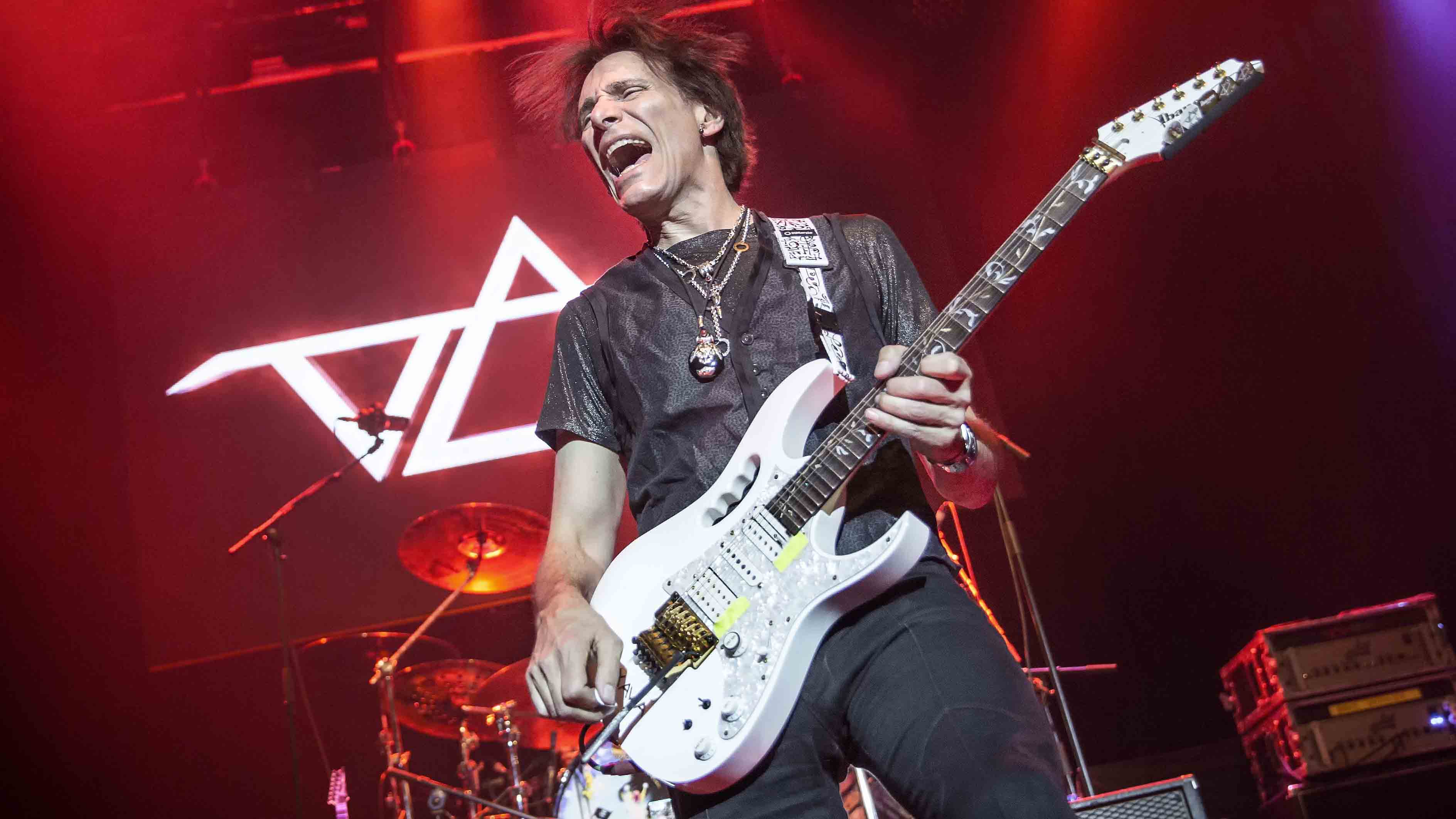
Modern Primitive
If Jimi Hendrix magically reappeared in 2017 and listened to new-ish Steve Vai track Dark Matter, you can imagine he’d have a pretty wide grin across his face.
Much like the ’60s legend’s own recordings, it’s funky, spacey and boldly daring in a way no-one else could have conceived…
“Hendrix was obviously a massive influence for me and so many others,” begins Vai. “And that’s what we try to do - we come into the world, we hear what’s available and once we’ve figured enough out, we decide where to go with it.
“I think if Hendrix heard Dark Matter, he would have been like, ‘Damn, this guy uses even more dominant 7 sharp 9 chords than I do!’ That sound is so Hendrix-y and I used it for almost every chord on that song, haha!”
Dark Matter is one of 13 tracks that make up this year’s Modern Primitive release, composed of material written and partially recorded in between debut solo release Flex-Able and the landmark sophomore album Passion And Warfare.
Originally included as bonus material for last year’s 25th anniversary reissue of Passion…, the revived recordings will now see the light of day as a standalone release.
“Well, my first record Flex-Able was pretty experimental and the follow-up came about seven years later,” continues the virtuoso legend.
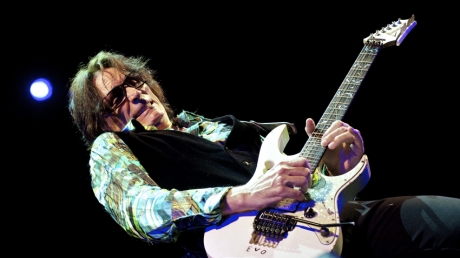
“If you’re a fan of those two records, you’ll be able to notice the difference! In that between-period, I put a band together [The Classified - featuring Stu Hamm on bass, Tommy Mars on keys, Chris Frazier on drums and Sue Mathis on vocals] and started recording, but never finished it.
I went back and took five or six tracks that were partially record and completed them. I thought, if I’m releasing an anniversary record, I wanna do something a bit more than remaster it, so I made all this extra stuff to go with it.”
Finishing these songs now three decades later, the ex-Whitesnake/David Lee Roth guitarist seems pretty chuffed with how it all turned out - somehow managing to nod to his past, an era which many would consider the greatest guitar work of all time, while never running out of ways to surprise us and himself. Which, he claims, is the key to his continual evolution…
“Most of these songs were written back then and there’s something in every one of them that lights me up,” he notes.
“Like when I listen to the first song, Bop!, it just sounds unique. Yeah, you can hear Zappa influences and stuff, but that main melody done on guitar with a vocal patch is unusual… I love finding musical and interesting things I’ve never heard before. And that’s precisely what it is!
“The Lost Chord with Devin Townsend is another one that blows my mind, as is Fast Note People, which has so much going on but the melody just weaves. When I listen back to the guitar solo in Never Forever, I can hear it was all a creative joy.
“I always think, ‘What can I do that’s different?’ That’s an important place to go in your head when you want to create something new.
“When it starts getting dangerous is when you think, ‘What can I create that everyone will love or will think is better than everything else?’ Then you are limiting yourself. You will never be able to create something that everybody loves, so stick with what you really love.”
I kept asking myself if there was something unique to me in each song until all of them felt beautiful and extraordinary
It’s that sense of challenging himself which led to a body of work that can stand shoulder-to-shoulder with the recordings he built his name on. The efforts may have been painstakingly arduous and time-consuming - though in truth, you don’t get to be as good as Steve Vai without putting in a lot of hard work…
“I kept asking myself if there was something unique to me in each song until all of them felt beautiful and extraordinary,” he reveals.
“The guitar solo in And We Are One has the deepest phrasing as far as what I can offer today. I worked really hard on it, to come up with things I’d never played before. And there’s the payoff… when you create something that little bit more evolved than what you’ve done before.”
Here, the Grammy-winning guitar legend picks the 10 guitarists that blew his mind…
Modern Primitive is out now via Favored Nations Entertainment.
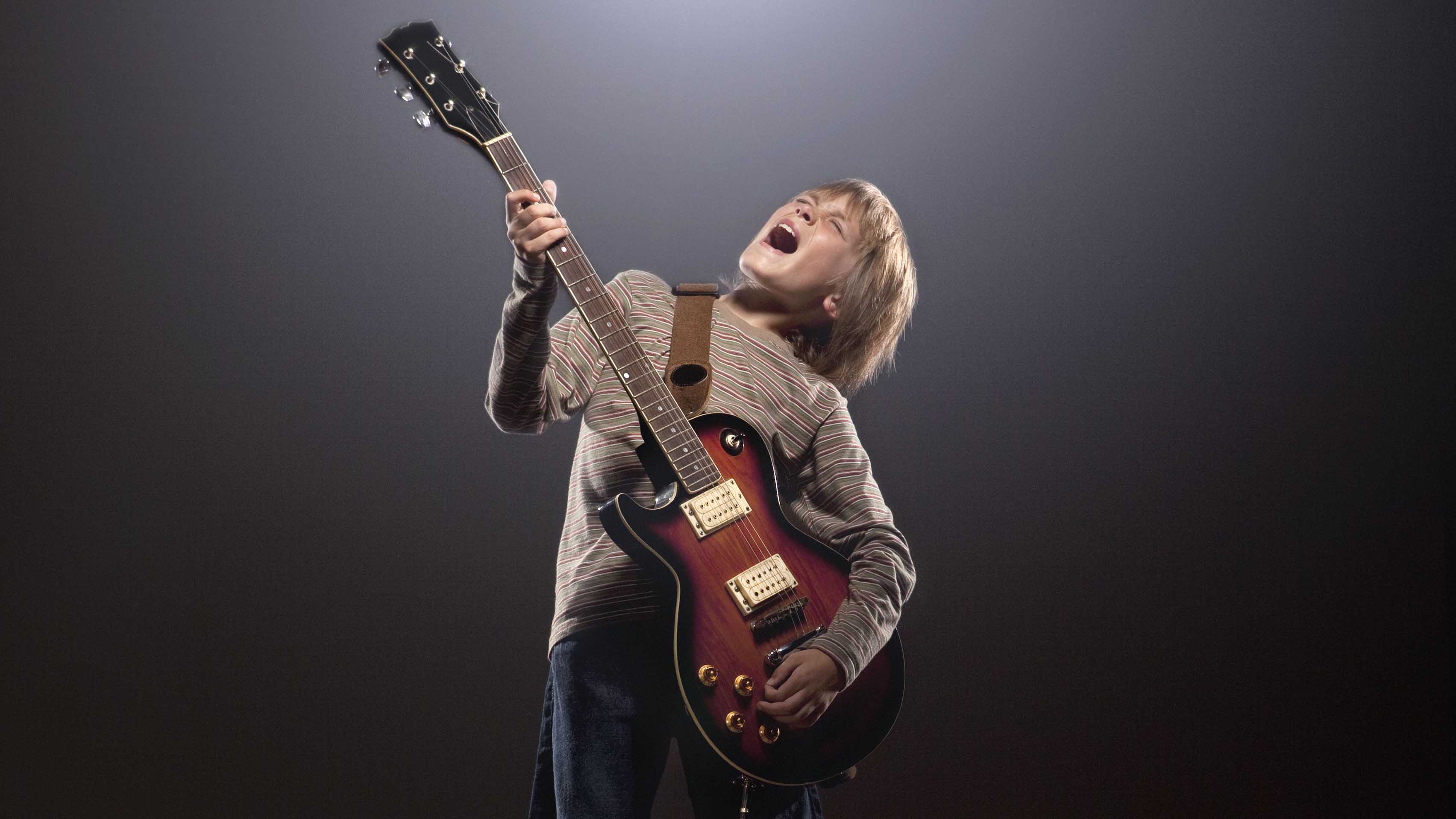
1. Some random nine year-old kid
“It’s always hard… you can ask me this question and I’ll give you different answers. Trying to think chronologically, the first one that blew my mind was someone whose name I can’t tell you. I saw this kid playing and that was it… this was the beginning of my love affair with this instrument.
“He was nine years old and I was six, haha! Honestly, it blew my mind and I thought, ‘Okay, I want to get into this!’”
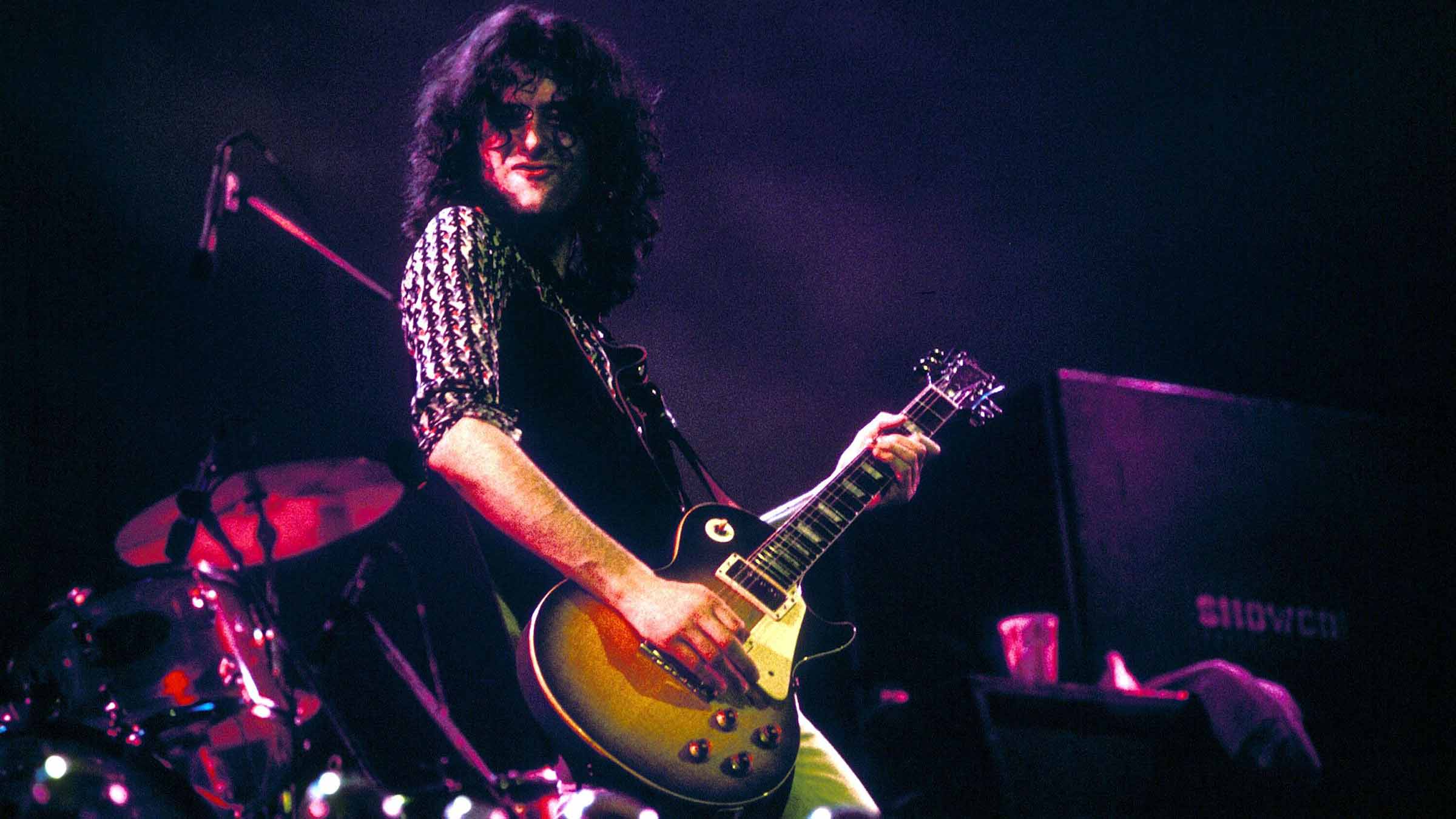
2. Jimmy Page
“As influential as that kid was, it all changed when my sister came home with Led Zeppelin II and I heard Heartbreaker. So Jimmy Page came next for me - I think some of the production side of his work rubbed off on me, too - but his sheer command of the instrument floored me. It always felt like Jimmy knew the right parts and was capturing atmospheres.
“There were other guitar players for me that felt brilliant but two-dimensional, albeit still powerful. Jimmy was always three-dimensional; there was depth in the notes, sounds and parts.
“He was the finest guitar architect on the planet and still is… no matter what he’s playing, even during his rusty stages, it sounds beautiful to me. There’s a charge in it, something in there carrying a thread of freshness and inspiration. His work is inspired, that’s the best I can say!”
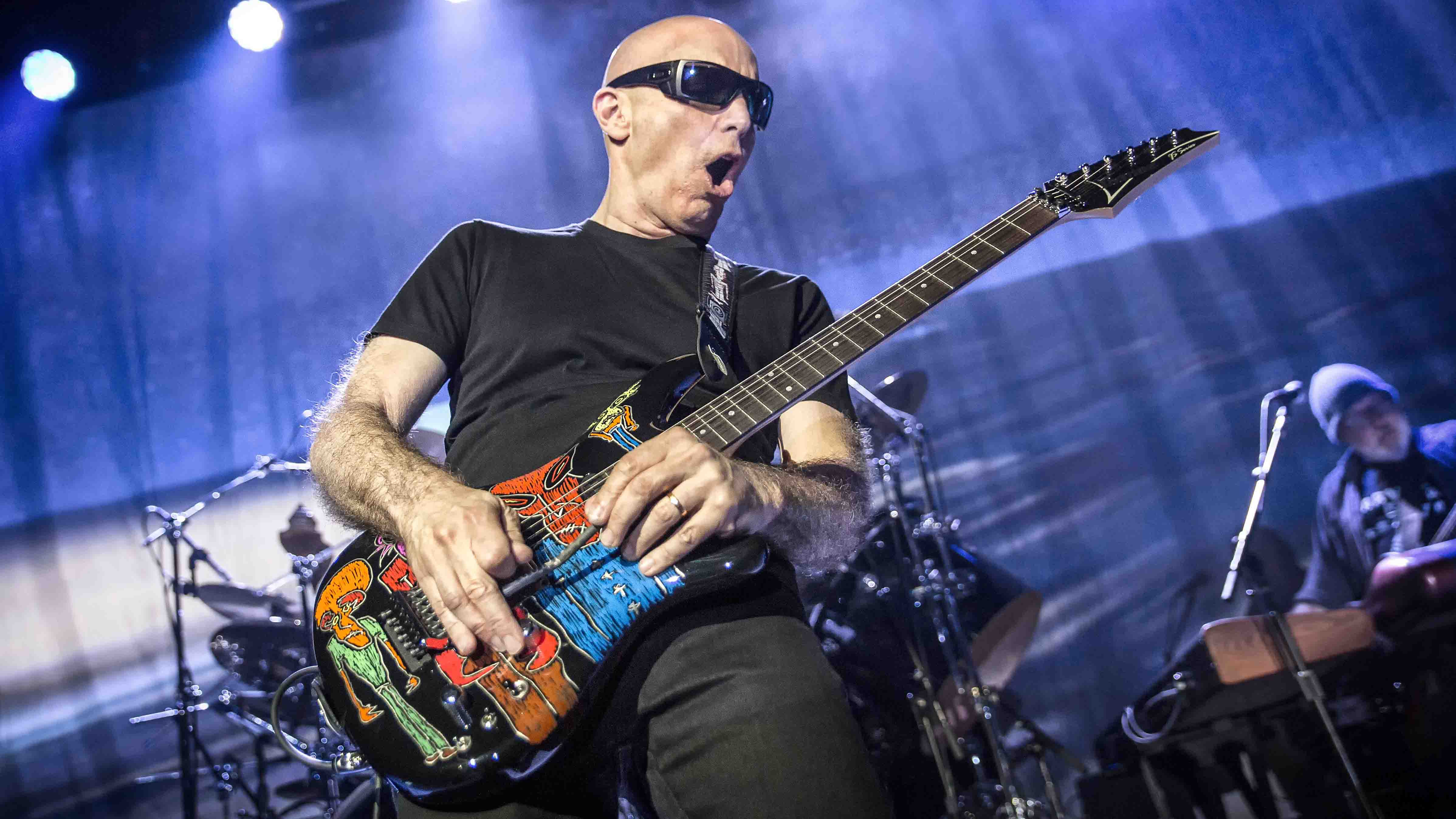
3. Joe Satriani
“I started taking lessons from Joe and didn’t really know many other guitar players. He blew my mind; I could not believe how good he was. I think I must have been 12 and he must have been about 15… but he could play the solo to Heartbreaker!
I would say, ‘There’s a guy nobody knows called Joe Satriani and he’s the best in the world!’
“The thing I noticed about Joe is that every time he put his fingers on the instrument, whether it was a scale, exercise or melody… what came out sounded like music. There was elegance in everything he did.
“I remember when I was starting to become more well-known, through my debut solo record and working with David Lee Roth, Frank Zappa et cetera, I wondered how could the world not know about Joe Satriani. There were interviews back then where I would say, ‘There’s a guy nobody knows called Joe Satriani and he’s the best in the world!’
“I guess the cream rises to the top and I’m so happy it did! Cryin’ [The Extremist, 1992] is one of my favourites of his…”
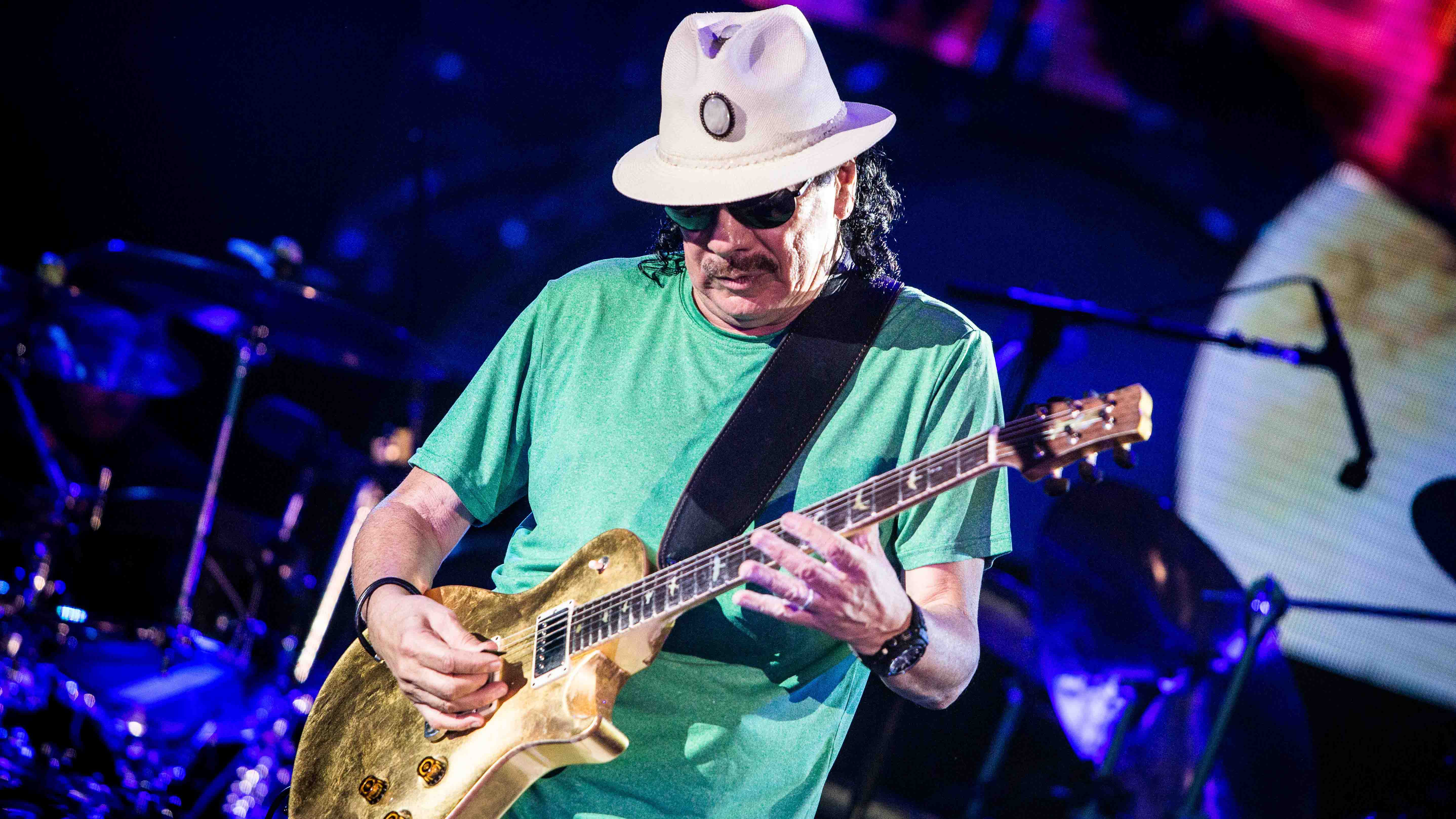
4. Carlos Santana
“Carlos was huge for me. When I heard Europa, my world stopped - it was one of the first songs I’d heard where the voice of the guitar was the lead through the whole song, yet it felt so angelic. It was like it floating on billion-dollar tears… beautiful long melodies where single note, every single breath had a beautiful intention to it.
“His tone was really identifiable; you put a PRS through a Boogie and you’re gonna get that midrange for a nice warmth.
“I was with my wife just the other day and this Santana song that had been sampled by a DJ came on the radio. Right then, I said, ‘Do you hear that? It’s so Carlos Santana!’ It’s his fingers, phrasing; you just can’t escape that beautiful round tone…”
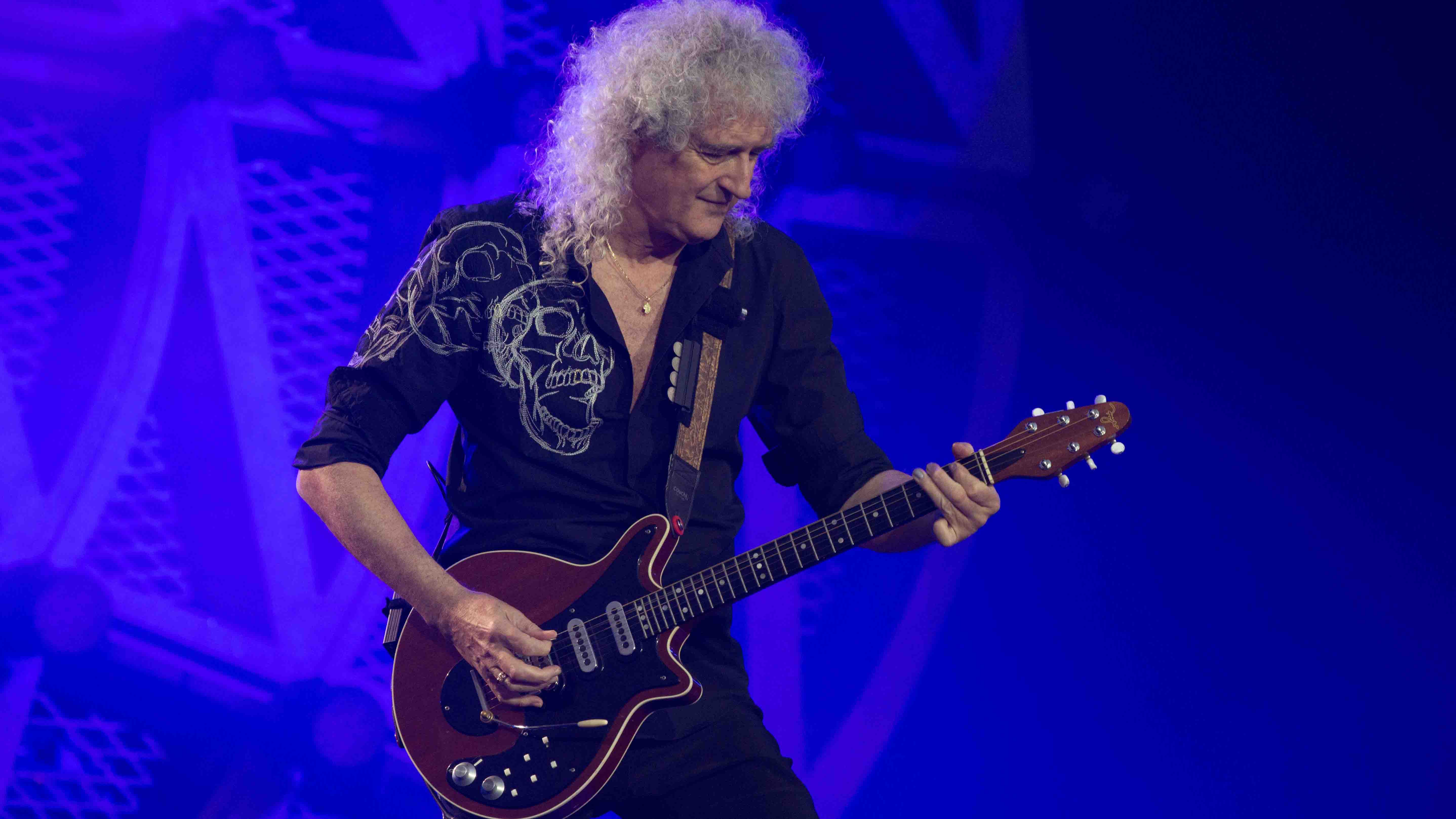
5. Brian May
“I was so stunned when I first heard Queen. Oh my god… it was like the skies had opened up. Isn’t it remarkable how unique they were and how nobody has come even remotely close to doing anything as exotic and crafted as Queen?
That’s what his beautiful harmonies sound like; they’re like audio whipped cream!
“Brian’s tone is so identifiable, he’s the master craftsman of rock guitar with cream on top. That’s what his beautiful harmonies sound like; they’re like audio whipped cream!
“I’ve tried many times to blend guitars, my whole is about blending guitars musically, but nobody comes close to him. His touch, note choice, musicality, tone… all of it.
“When I got to know Brian, I realised that it’s his personality flowing heavily into that music. There’s almost a sense of royalty to how he plays his notes.”
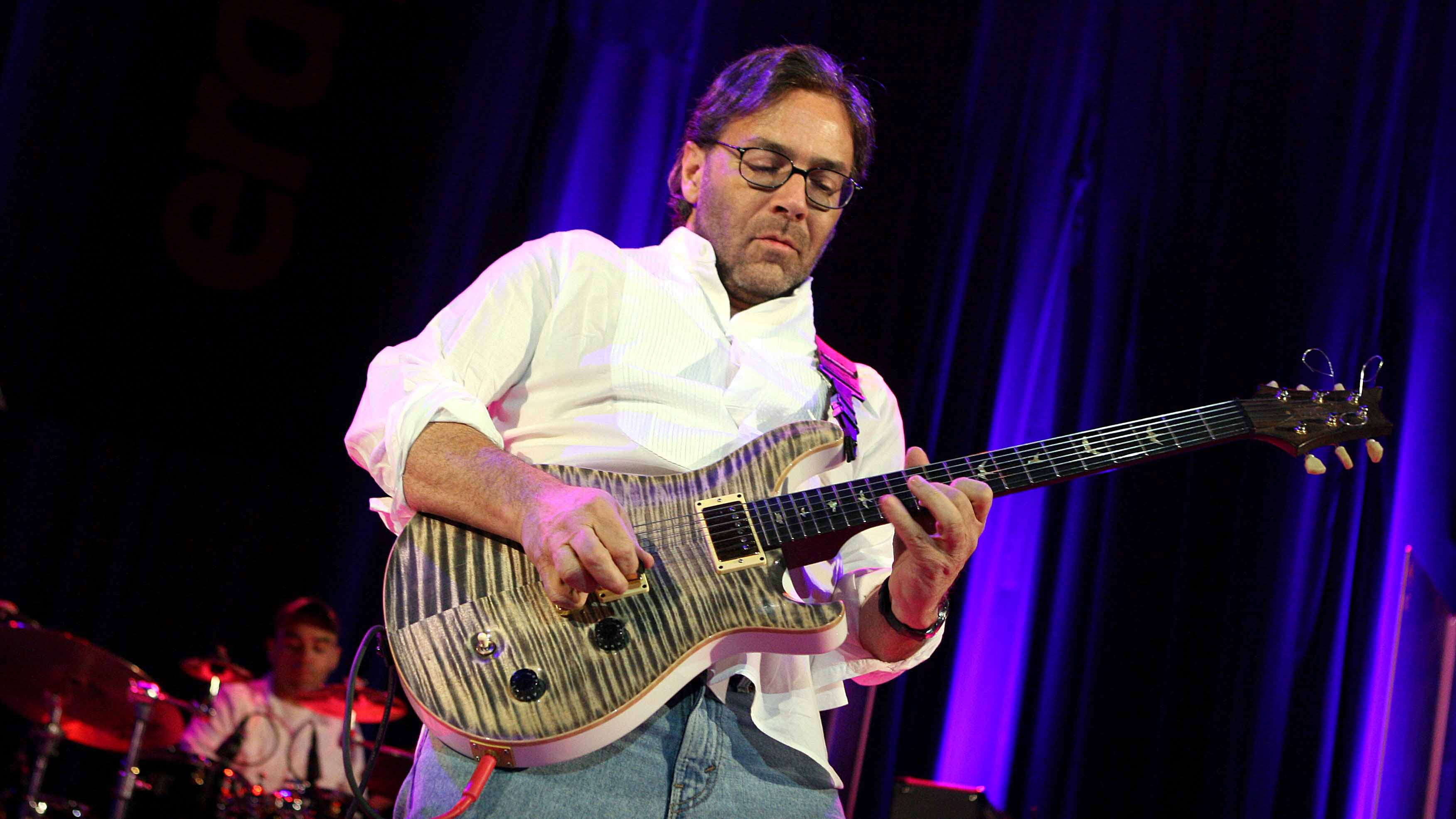
6. Al Di Meola
“There were so many great fusion players that I started listening to when I was younger, but perhaps the one that had the biggest impact on me was Al Di Meola.
When these incredible virtuosos came along, they’d just blow you away. They’d show you things that you previously thought were incapable of being done!
“I was young when I discovered his music, and when these incredible virtuosos came along, they’d just blow you away. They’d show you things that you previously thought were incapable of being done! Al’s tone, speed, chops… I couldn’t believe it.
“In 1981, I was doing a show with Zappa at the Plaza in New York. Frank had invited Al to come jam with us. He showed up, opened up his guitar case, which had a black Les Paul - he plugged that into a dry Marshall head, started playing and our jaws hit the floor. It was like rapid machine-gun fire and every bullet was gold, haha!
“If you listen to him with John McLaughlin and Paco de Lucía on Friday Night In San Francisco… those guys were absolute freaks, man. Don’t we all wish we could pick like that, right?!”
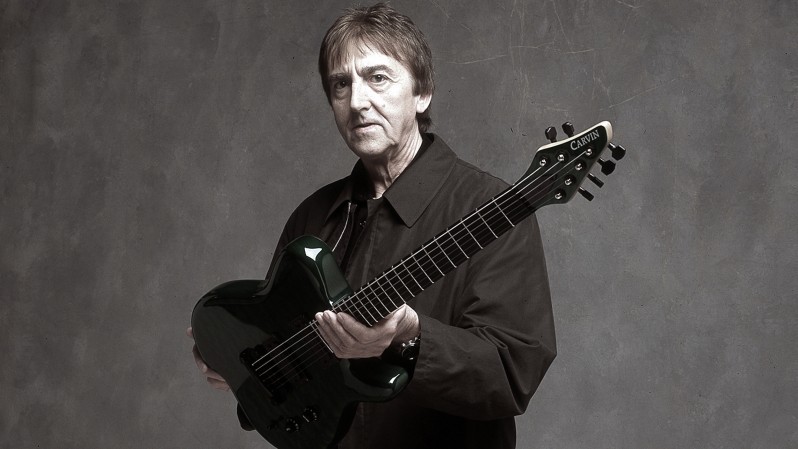
7. Allan Holdsworth
“I very rarely agree with the term best guitar player. It just seems so obscene to put something so subjective into a best category. But if I had to say there was one, I would pick Allan Holdsworth.
“He was unique in ways that I don’t think have been discovered yet. Many musicians can be considered ahead of their time, but usually… they’re not. They’re mainly ahead of everyone else at that time.
Allan Holdsworth was definitely ahead of his time because it’s hard to realise how great he is - not many people actually understand
“For example, Jimi Hendrix wasn’t ahead of his time; he was perfect for his time and ahead of everyone else. Allan Holdsworth was definitely ahead of his time because it’s hard to realise how great he is - not many people actually understand. It takes time for us to catch up with those that are ahead of their time.
“I would not be surprised if in 100 years from now, if people are still even listening to guitar - which I suspect they will be - he’ll be singled out as ‘the one’ alone, so to speak.
“The way he uses the whole tone scale is like his own baby shoes - it’s so easy for him. His thought process was phenomenal. I can hear any guitar player and I know what they’re doing - I might not be able to play it - but I can see it in my mind’s eye. But I do not know what the fuck Holdsworth was doing at all…”
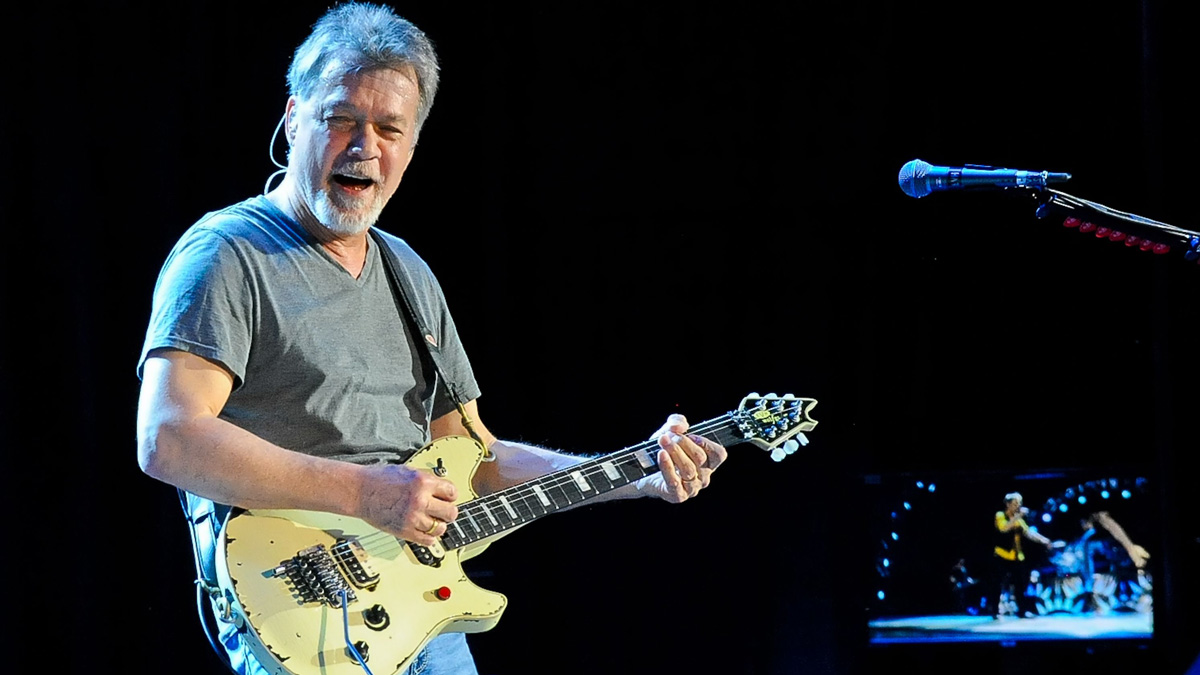
8. Edward Van Halen
“The next thing that hit the scene was Edward. Everyone was blown away by him. There was a simplicity in what he does, but like Brian May, there was so much personality in there. He hears things differently to everyone else; his tone is a reflection of what’s going on in his head.
“I know it - because he came to my house once when I was recording, played my guitar through my effects into my amp in my studio… and it sounded exactly like Edward. For me, it was about the simplicity of the songs, the beauty of his rhythm playing - perfectly balanced with attitude, crunch, integrity and badassness!
“If there were two musicians that had the biggest impact on electric guitar, it would be him and Hendrix. They were the kind of gamechangers that come along very rarely, approaching the instrument differently but also accessible, inspired and effective. It penetrates us… and that’s Edward in a nutshell.”
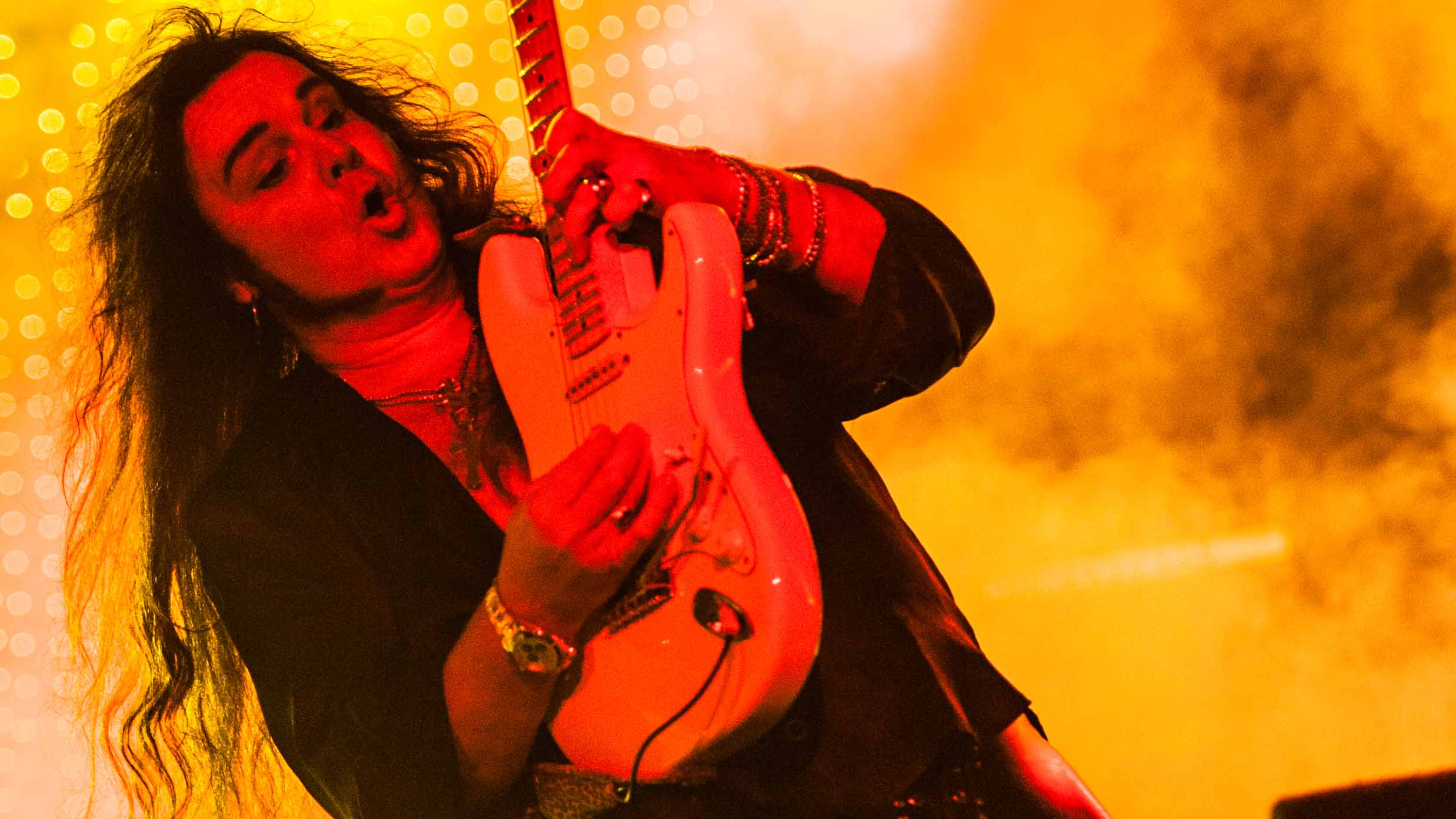
9. Yngwie Malmsteen
“When he hit the scene, he was doing things none of us thought were possible. He raised the bar in such a way, whether you liked it fast or not, it was an eye-opener. An absolute shocker.
“What I love about Yngwie is his fierce confidence and developing of a style. You can hear the classical composers, as well as guys like Uli Jon Roth and Ritchie Blackmore, taking it to a whole different level. I’m not necessarily a fan of that style of renaissance baroque classical music, but you cannot deny the breathtaking brilliance he introduced to the guitar when he hit the scene.
Yngwie’s blues is different to everyone else’s. And his beautiful, slow and melodic playing with that gorgeous vibrato is phenomenal…
“We’ve been good friends for about 30 years and toured together on Generation Axe. One thing he’s very strict with is doing a soundcheck, during which he sometimes plays differently - doing a lot of blues stuff that leaves me stunned. It’s like, ‘Wow - he can do things to the blues that I’ve never heard!’
“It’s still an acquired taste, but then even Stevie Ray Vaughan was an acquired taste for some people. Yngwie’s blues is different to everyone else’s. And his beautiful, slow and melodic playing with that gorgeous vibrato is phenomenal… we’d play Black Star together and it was a treat every single night.”
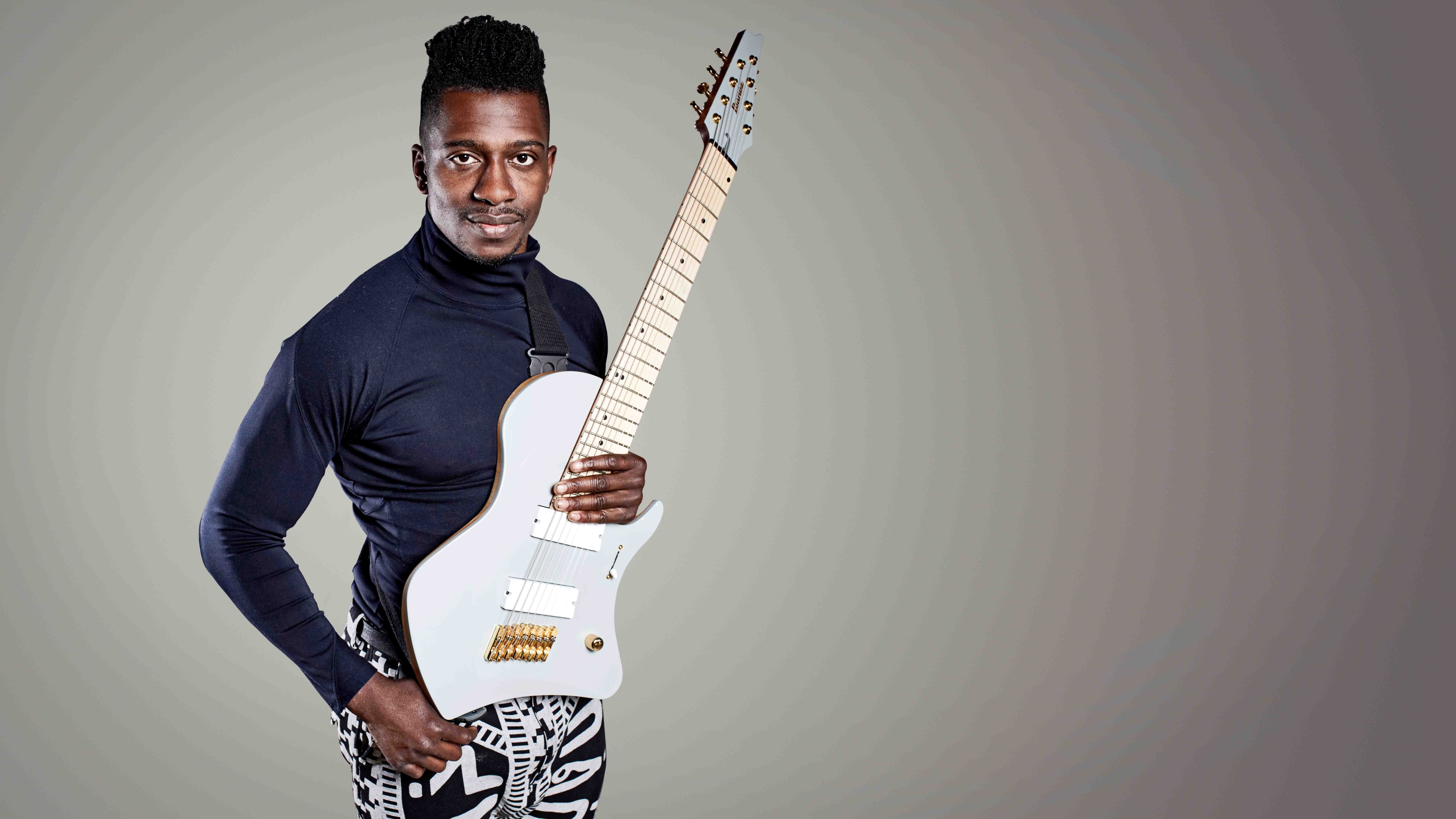
10. Tosin Abasi
“When I think of guys that are creating things of great value right now, I think of Tosin Abasi from Animals As Leaders. He was also part of the Generation Axe tour. He’s one of few players I’ve heard that combine various elements of music that I really like.

“There’s this underground movement of guitarists that are still very interested in shredding their ass off at levels beyond my comprehension. When I hear it, I find it fascinating, but it’s not as musical as I’d like to hear. I like unpredictable things, which is what Tosin is great for - inventing grooves that make you feel different from anything in the past, as well as effortless chops and beautiful big chords you don’t normally hear.
“And he’s doing these chords on an eight-string, which makes them even more unconventional. The music has melodies within the chords; they’re really quite exquisite.
“His rhythmic sensibilities are unique - it’s not based off your normal 4/4 or odd-time signature - there are polymetric systems moving inside of each other. They are hard to figure out, but they create this feeling that’s incredibly unique. He’s a rare bird - and his chops are off the hook!”
Amit has been writing for titles like Total Guitar, MusicRadar and Guitar World for over a decade and counts Richie Kotzen, Guthrie Govan and Jeff Beck among his primary influences. He's interviewed everyone from Ozzy Osbourne and Lemmy to Slash and Jimmy Page, and once even traded solos with a member of Slayer on a track released internationally. As a session guitarist, he's played alongside members of Judas Priest and Uriah Heep in London ensemble Metalworks, as well as handling lead guitars for legends like Glen Matlock (Sex Pistols, The Faces) and Stu Hamm (Steve Vai, Joe Satriani, G3).
